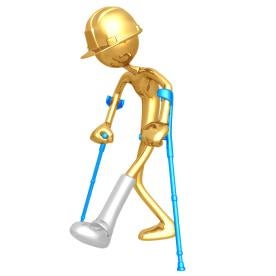How would you respond if someone were to ask you: “Can most people be trusted?” Go on. Answer internally. Now, how would you answer a different, but similar, question: “Can most experts be trusted?” If you find yourself struggling to answer this one—where the previous question seemed easy and straightforward—ask yourself why. Is it because every expert is different and may have a different opinion? Wouldn’t the same be true for all people? As a juror, if you find yourself wanting to know the expert’s opinion first because you want to see if it sits right with you before you believe the expert, perhaps the real question would be: Can the jury ever trust an expert with whom they disagree and what do you do if that answer is no?
Trust in the United States
|
According to the General Social Survey conducted by NORC, an independent research association at the University of Chicago, people in the United States are generally less trusting of each other than they used to be. As of 2014, when asked “Generally speaking, would you say that most people can be trusted or that you can’t be too careful in dealing with people?” the number of people who stated they believe others can be trusted was at a historic low. So, trust nation-wide is most definitely down. What does this mean in the realm of testifying experts? When you are not knowledgeable about an area of expertise, you rely on trust. There really is no other option. You either know or you believe. But there is also the very tricky additive of how you feel about a topic. In a recent Yale Law School study, author Dan H. Kahan explains “[i]ndividuals more readily impute expert knowledge and trustworthiness to information sources whom they perceive as sharing their worldviews and deny the same to those whose worldviews they perceive as different from theirs.” Meaning, people impute more expertise to the expert whose opinion they agree with, the one which more closely matches theirs. While it doesn’t sound crazy, in the world of expert testimony, it may sound a little frustrating. Why put up experts at all if trust is waning and the jury is pre-programmed to side with the expert who reinforces their already-ingrained beliefs? Because you know you need experts. In many cases, you must put forth expert testimony to sufficiently prove your case to withstand appeal. It’s possible to use the observed psychology behind expert testimony to your advantage at trial. Juror TrustStay with us here. This is just a theory, but we would love your thoughts. We have previously reported on the effect of the observed dogmatic effect of the “expert label” in that it can make people, particularly those who don’t necessarily deserve the label, more close-minded in their opinions. What might happen if you combine these two principals at trial? At the outset of the trial, the jurors are not experts so they have to trust. While trust is generally waning, it is likely the jurors will trust the expert who states an opinion with which they already agree. For those who side with your expert, boost their confidence in that opinion. How? By labeling them as an expert. Not explicitly, but implicitly. Make complex issues seem so simple, so black and white, anyone can understand them and make a decision about what is right, what is fair.
After the evidence has been presented, summarize it in a manner that makes the jurors or the judge feel like the expert. Instill in them a belief that you now trust they know enough about the case that making the right decision will be an easy one. What will this do? Make them more dogmatic and close-minded in their agreement with your expert’s opinion, which is now their opinion, and one they will fight harder for in the jury room. You will need them to battle those jurors who do not agree with your expert and who will be, according to this research, less trusting of your expert. Many would agree trials are rarely won by jurors who are swayed. Rather, jurors are usually more inclined, the minute they set foot in the box, to either agree with your side or not and that does not change over the course of the trial. For those jurors who are pre-disposed to trust your expert, harness that by making them the experts too.
What do you think of this tactic? If trust these days is hard to come by and still biased, should you just tell the jury to trust themselves? |




 i
i


